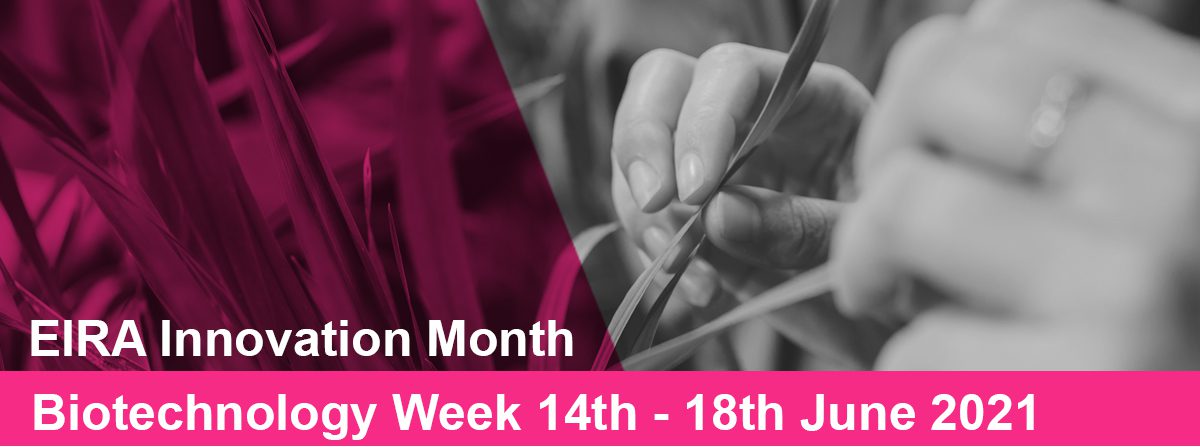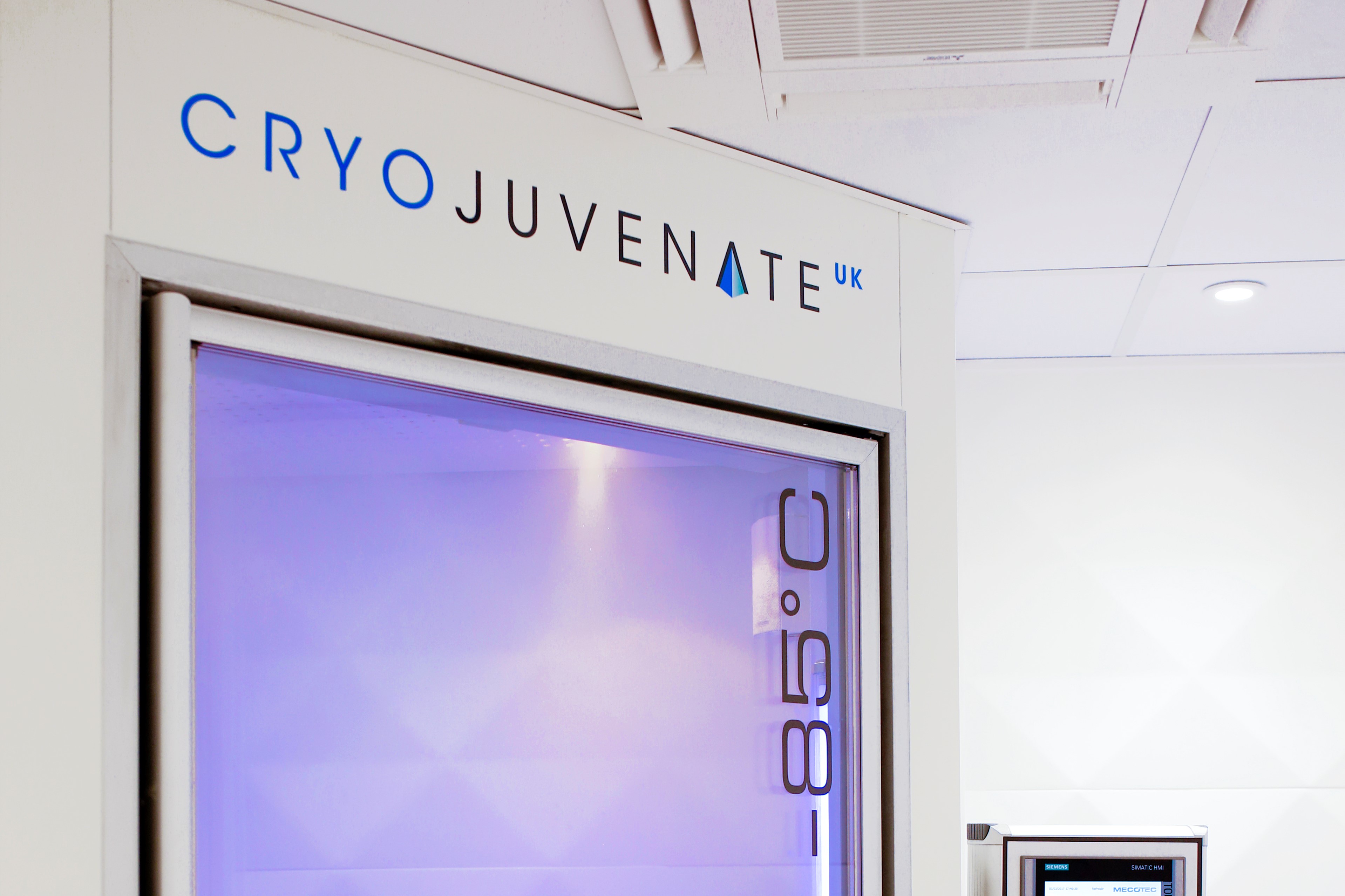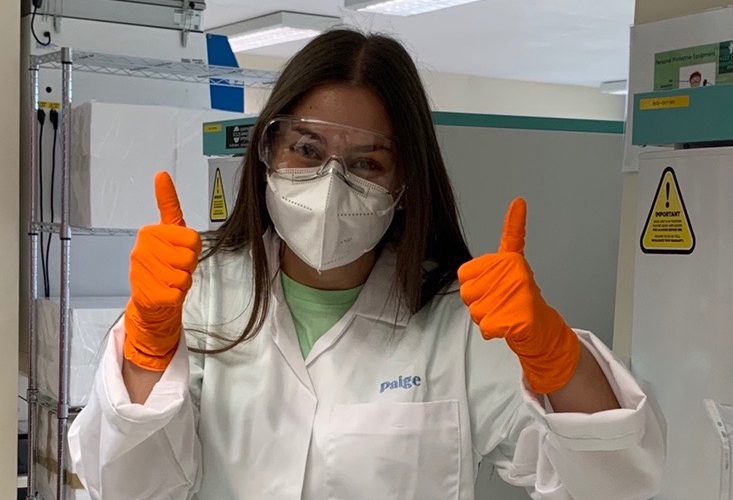We’re almost halfway through #InnovationMonth, celebrating the 3-year Enabling Innovation: Research to Application (EIRA) project, and this week is Biotechnology Week. Here, we take a look back on two very different biotechnology projects successfully supported by EIRA.
Relieving Perimenopausal Symptoms with Cryotherapy
The perimenopause begins several years before the menopause and lasts on average for around 4 years. During this time, 8 in 10 women will experience symptoms which can have a significant negative impact on daily life. Managing Director of Cryojuvenate in Sevenoaks, Ruth Hyde, was aware of women anecdotally noticing an alleviation of perimenopausal symptoms following whole body cryotherapy, and wanted to determine if it could be used as a treatment to improve quality of life for women.
With this in mind, she worked closely with Dr Glen Davison, Reader and Head of the School of Sport and Exercise Sciences at Kent, to design a study to investigate the effect of whole body cryotherapy on the alleviation of perimenopausal symptoms. This involved 9 perimenopausal women taking part in six 3-5 minute sessions at -85 degree Celsius in Cryojuvenate’s cryochamber, and the analysis of saliva collected throughout. The volunteers were asked to record menopausal symptoms, hot flushes and sleep quality one week prior treatment, during the treatment and one week post treatment.
The project showed that whole body cryotherapy resulted in an improvement in perceived perimenopausal symptoms of sleep quality and the effects of hot flushes on general quality of life, and that the hypothalamic pituitary axis (HPA) is activated following cryotherapy. Cryojuvenate and the SSES research team are keen to continue research in this area, and will seek to compare these findings with a placebo and look for further funding opportunities.
Read the full case study on our website here.
Using Local Fruit Waste for Biofuel Production
Proof of Concept projects allow researchers to develop innovative ideas with a commercial focus, offering opportunities to improve their data, apply for a patent, test feasibility, and prove market potential. They often lead to new products or services which can benefit businesses.
One such project, funded by EIRA’s Proof of Concept Fund and led by Dr. Mark Shepherd and Sarah Blackburn from the School of Biosciences, sought to investigate whether the large quantities of fruit waste generated by Kent winery / cider / perry industries could be used as an economically viable alternative feedstock for biofuel and chemical production. The fund enabled them to identify the most appropriate fruit waste for the production of acetone-butanol-ethanol, develop a process to release the sugars from the fruit pulp for fermentation, and assess the commercial viability of the whole concept.
The team’s research could prove highly valuable over the next 5 to 10 years, with the ability to charge ‘green premiums’ or the introduction of governmental incentives likely to reignite interest in bio-butanol production. As we move away from petrochemical processes and a towards a demand for more environmental sustainability, they expect to see more interest from a range of commercial partners.
Read the full case study on the EIRA website here.
Taking on a Biotechnology Internship in a Pandemic
Internships can be a brilliant opportunity for a business to take on a pair of helping hands, whilst offering a student the opportunity to gain and practice new skills in the workplace. The EIRA Innovation Internships did just that, giving small to medium-sized enterprises (SMEs) based in the East of England the chance to benefit from the region’s student talent.
AbBaltis serve the in vitro diagnostics and biotech markets by offering innovative, reliable and quality biologically-based products for their clients. Based in Kent, they took part in EIRA’s Innovation Internship scheme in 2020 and hosted a Biotechnology internship for PhD student Paige Policelli from our School of Biosciences. The Covid pandemic had spiked demand for certain antibodies in order to understand the human immunological response to Covid-19 and consequently develop vaccinations, so AbBaltis began testing all of their current stock in the hope of sourcing these incredibly research-valuable antibodies and positive samples potentially containing the virus itself. As a keen, newly graduated biochemist, Paige was able to use her skills and intellect to contribute against Covid-19 by supporting AbBaltis in this work.
Paige said of the internship, “My time at AbBaltis was thoroughly enjoyable and extremely valuable to my career as a laboratory scientist. I got to see the business side of science, which is something that was new to me, as I had never worked in industry.”
Giedre Brandeo, Managing Director at Ab Baltis, said of internships at the company, “As the pandemic is still ongoing, many businesses are once again hesitant to offer internships. I would urge them to reconsider this and give the internships a go. We will certainly be continuing with our program as I firmly believe such opportunities help companies grow.”
Read the full case study on our website here.




